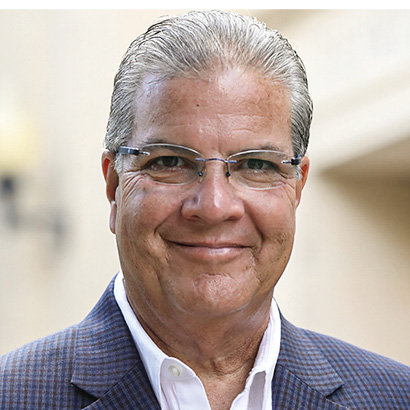The Gospel's Global Growth
What does Christianity look like around the world? How does it spread to new people and new regions?
Carlos Cardoza-Orlandi, Ph.D., Baylor’s Frederick E. Roach Professor of World Christianity, seeks to answer these types of broad questions through his research as he studies the vitality of the Christian faith in regions around the globe, especially in the Global South.
“Many Christians and non-Christians believe that Christianity is basically a Western religion,” Cardoza said. “The vitality and growth of Christianity is no longer in the old centers of the Christian faith — Western Europe, USA, Canada.”
Cardoza said Christianity’s new centers are found in sub-Saharan Africa, Latin America, Asia and Oceania.
“Christianity is taking its own agency, its own taste, its own rhythms in a way that actually provides windows and opportunities to see the Christian religion with a new perspective, with an understanding of new agents of the Christian faith,” he said.
A native of Puerto Rico, Cardoza earned a bachelor’s degree at the University of Puerto Rico and a master’s degree at the Evangelical Seminary of Puerto Rico before adding a second master’s and a Ph.D. from Princeton Theological Seminary. He taught at Columbia Theological Seminary in Decatur, Georgia, and at Southern Methodist University’s Perkins School of Theology before joining Baylor’s Department of Religion in 2018.
“Some of the commonalities that I find very exciting about ... Christians in Cuba and Christians in Waco, is
a passion to do good — a conspiracy for goodness
for the communities.”
In his research, Cardoza wears many hats — religion scholar, historian, anthropologist and more — in an effort to understand the ways Christianity is spread from one area to another. For missionaries and scholars, an understanding of the contexts they are entering can play an important role in the Gospel’s reception. According to Cardoza, people first begin to understand and receive the Gospel in a manner that is shaped by their own experiences, common expressions, cultures and other religions. When the faith takes root in a region, the ways in which people live out their calling often take on unique cultural qualities.
“You need theology for that process to be healthy,” Cardoza said. “When you have that interplay in a new context, Christianity is seasoned with the spices of that particular context and becomes known, becomes vital in a new area and has new expressions.”
Cardoza’s work takes him to disparate cultures and locations around the globe. However, he sees constant reminders of the shared mission that binds Christians around the globe together.
“Some of the commonalities that I find very exciting about, let’s say, Christians in Cuba and Christians in Waco, is a passion to do good — a conspiracy for goodness for the communities,” he said. “I also see a passion for worship. You have it with different musical styles, and yet at the same time, there’s something that brings us all together in coming together to praise God.”
